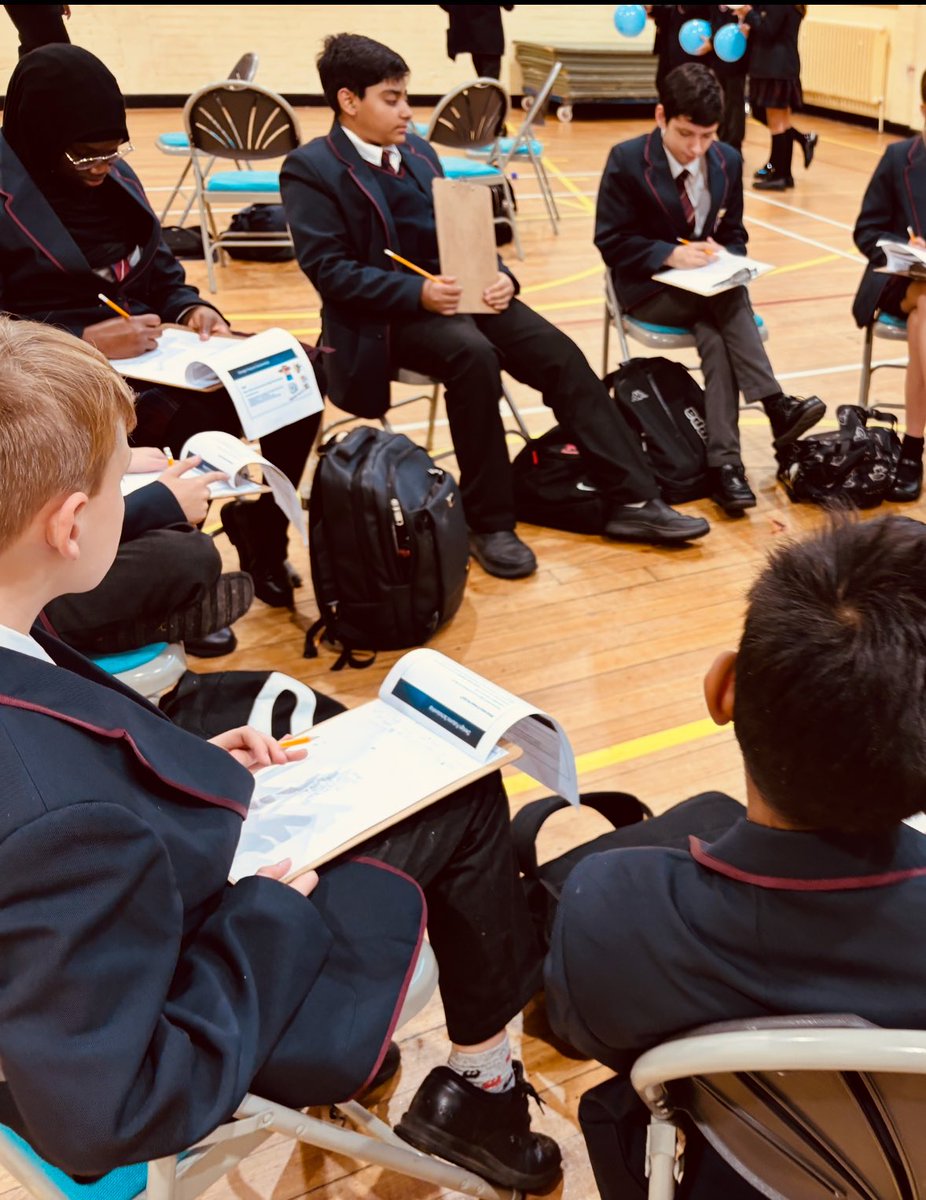Curriculum Overview
Curriculum design is the cornerstone to delivering a quality education to all children. We believe in having a knowledge-rich curriculum that delivers broad, diverse and ambitious knowledge invaluable for ensuring all children are ‘in the know’ and are taken beyond their everyday experience. We believe strongly in our curriculum mantra that “Knowledge is Power. We make it Stick.” Everything we do from maths to personal development centres around this belief.
The academy ensures that people are protected from discrimination as per the Equality Act 2010 and the Special Educational Needs and Disability Regulations 2014. Every student has the right to access and succeed in learning at Harris Academy Ockendon (HAOC).
When we choose what to include in our curriculum, we are always aware that we are choosing not to include something else. As such, our subject team leaders begin by fixating on ‘what’ to teach and the intent of their curriculum, before thinking about ‘how’ they will deliver it. With this in mind, we believe in selecting ‘better’ or ‘more powerful knowledge’ in every subject discipline, which is specialised and takes its authority from leading academic institutions.
It is every child’s right, regardless of their academic ability or prior attainment, to access this powerful knowledge to ensure they are not only able to perform well in public examinations but develop the disciplinary knowledge and cultural capital necessary to successfully navigate and interrogate the future world they will encounter. For staff at Harris Ockendon, this is a matter of social justice.
Examples include:
- In English, we want students to experience the majesty of Shakespeare, and to create deep, cognitive connections in their knowledge by exploring the origins of Greek tragedies and its impact on drama across societies, cultures and time periods.
- In History, students will develop a good understanding of the lessons to be taken from the Holocaust, but we also know their knowledge and understanding will be richer if they have an appreciation for the impact of genocide more widely by studying other global events in Bosnia, Rwanda and Cambodia.
- In music, students will develop competent performance skills across musical instruments such as the piano, keyboard, guitar, and using their voice, as well as learning to appreciate and interpret the diverse origins and cultural heritage associated with music by studying Gamelan music of Indonesia or Reggae and Blues music.
Our subject team leaders have designed and planned their curriculum according to the following 5 principles:
- The curriculum is driven by powerful knowledge with the challenge ‘pitched up’;
- The curriculum is sequenced logically so that new knowledge builds upon old and prepares pupils for the next stage;
- The curriculum is specified in detail so that teachers and pupils are clear on what needs to be learned and in what depth;
- The curriculum is taught to be remembered, not merely encountered;
- The curriculum is supported with a homework strategy that supports the delivery of knowledge to long-term memory.
The approach to curriculum design can therefore be summarised according to the following equation:
Ambitious Intent ⇒ Logically Sequenced ⇒ Specified in Detail
How students learn the curriculum
Making it Stick
Every decision we make about learning and teaching is governed by two truths about learning:
- If nothing has changed in long term memory, nothing has been learnt
- Forgetting is inevitable
No matter how brilliant a year 8 Spanish lesson appeared, if the students cannot remember it two weeks later, it wasn’t learnt. Understanding sometimes gets confused with learning, but they are not the same thing. Therefore, everything we ask students to do, and everything we talk to teachers about, is designed to make more knowledge stick in long term memory.
Lessons and lesson structure
We are not overly prescriptive on how lessons should look at Harris Ockendon, but there are some principles that all teachers adhere to.
All lessons start with a high challenge retrieval activity, followed by a period of fully guided instruction (‘I do’ ‘We do’ ‘You do’). This is surrounded by a warm/strict approach to behaviour management: ‘Because we care, what we ask students to do is not optional’.
Stopping the Forgetting – How lessons start
Every lesson at Harris Ockendon starts with 10-15 minutes of high challenge retrieval questions designed to stop the forgetting of the most vital knowledge, facts and skills. The questions pull from a broad knowledge base, including previous topics and sometimes previous years!
Such is the importance we place on ‘stopping the forgetting’, it is expected that all students attempt all the ‘Do Now’ questions, and those not attempting all of them are challenged. Teachers will refrain from providing too much help in the first 10 minutes, instead motivating students to think hard without looking back over previous work.
The teacher then spends time going through the answers, reteaching the most important points if necessary, and students make corrections. The graph below illustrates our belief, that the more knowledge is retrieved in Do Now quizzes, the more is remembered.

Examples of Do Now quizzes from Maths, and Spanish;


Fully guided instruction: ‘I do’ ⇒ ‘We do’ ⇒ ‘You do’
Following the ‘Do Now’, teachers pitch high in the ‘I do’ phase. This is where teachers introduce the new content clearly with great examples, models and explanations. We pitch it high, often above the most able students in the class, so everyone is challenged.
We follow this with a ‘We Do’ phase that provides support. Here you will see processes deconstructed, lots of questions being asked, students helping the teacher do some more examples, paired talk, and practice with writing frames.
Finally, students practise the new thing they’ve learned independently without support. The ‘arm bands are popped’ - there will be no / minimal support from the teacher. Rather than different levels of task, we strive for everyone doing the same, difficult thing. The support given in the ‘We Do’ phase ensures that all students can perform the ‘you do’ practise successfully, gaining confidence and embedding vital knowledge in long term memory as they do so.
Curriculum Review Cycle
In service of ensuring our ambitious curriculum is implemented as intended, the senior leadership team work throughout the year with subject team leaders to review and evaluate the design, sequencing and common approaches to implementation. This follows a cycle throughout the academic calendar during which the following steps are undertaken:

If you require any further information about our Curriculum, please contact our Assistant Principal, Mr Webb via email at a.webb@harrisockendon.org.uk
Reading list
Glossary of terms click here
Best recommended books:
- The researched guide to The Curriculum (Sealy and Bennett) Amazon link
- How Learning Happens (Kirschner & Hendrick) Amazon link
- Making Every Lesson Count (Allison & Tharby) Amazon link
- The Learning Rainforest (Tom Sherrington) Amazon link
- Making Good Progress? (Daisy Christodoulou) Amazon link
Best recommended blogs:



















